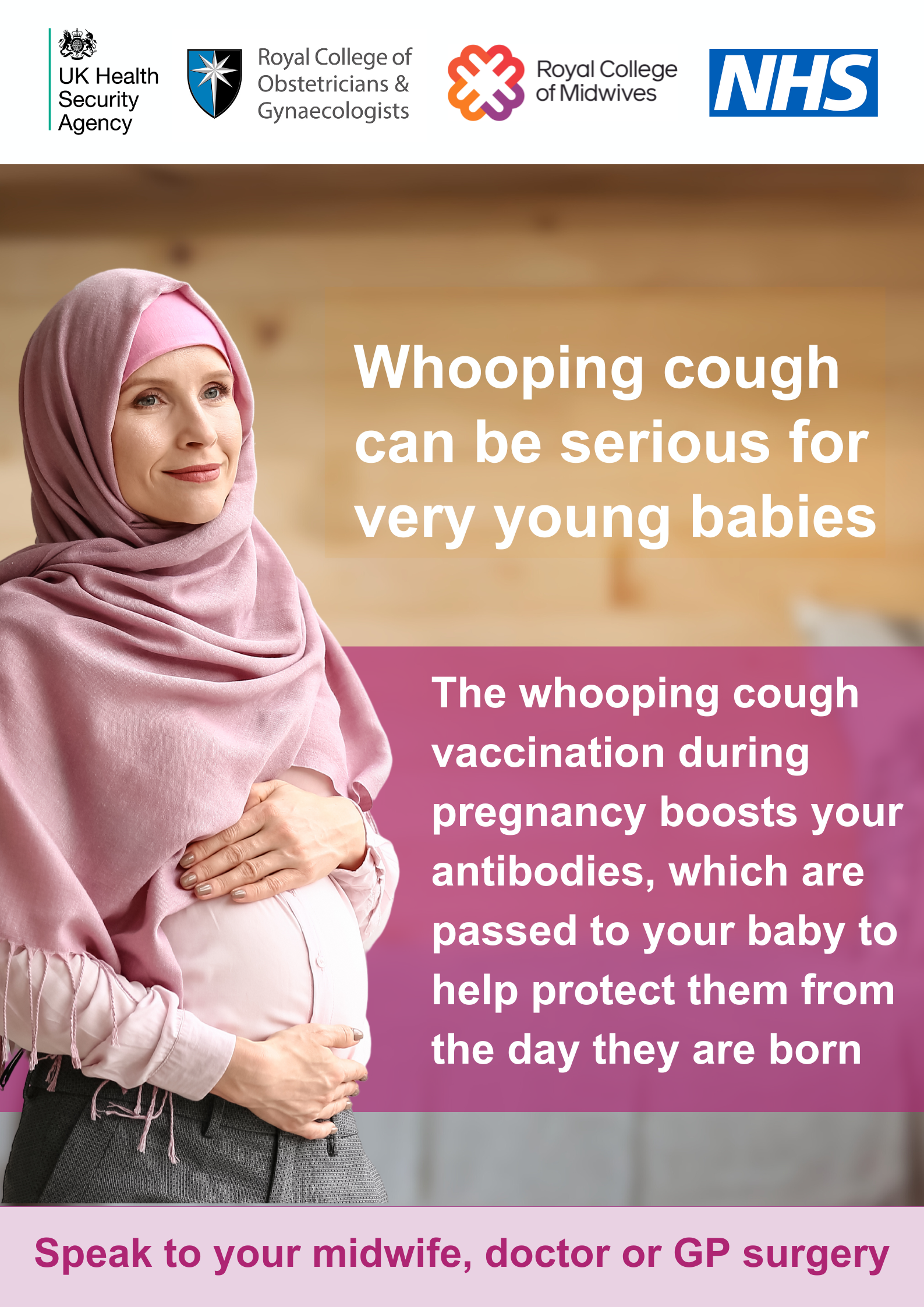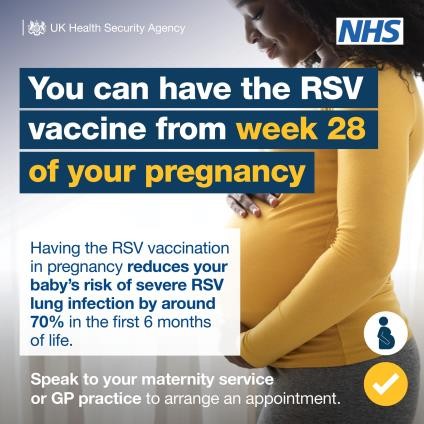Protecting you and your baby
Why vaccinations matter
Pregnancy is a special time, and your health is more important than ever. Getting the right vaccinations can protect you and your baby from serious diseases. In the Black Country, our local NHS teams are here to support you in making safe and informed choices for your health and your baby’s health.
This page contains key information on the vaccinations recommended during pregnancy, why they are important and where you can get them.
Recommended vaccinations for pregnant women
Flu vaccine (influenza)
Why it's important: The flu virus can be more severe when you're pregnant and it can lead to complications like pneumonia, which can harm you and your baby. The flu vaccine will protect both of you.
When to get it: It’s recommended at any stage of pregnancy, especially during flu season (usually between October and March).
Is it safe? Yes, the flu vaccine is safe at any stage of pregnancy. It won’t harm your baby.
Whooping cough vaccine (pertussis)
Why it's important: Whooping cough can be dangerous for newborns. Getting the whooping cough vaccine during pregnancy helps protect your baby from birth until they are old enough to be vaccinated themselves.
When to get it: The best time to get this vaccine is between 16 and 32 weeks of pregnancy, but you can still get it up until before your baby is born.
Is it safe? Yes, the whooping cough vaccine is very safe for both you and your baby.
COVID-19 vaccine
Why it's important: COVID-19 can cause complications for pregnant women, including premature birth. The COVID-19 vaccination reduces the risk of severe illness for you and protects your baby.
When to get it: The COVID-19 vaccine is safe at any stage of pregnancy, whether it’s your first or second dose, or a booster.
Is it safe? Yes, the COVID-19 vaccine has been widely used by pregnant women across the UK and is safe for you and your baby.
RSV vaccine (Respiratory Syncytial Virus)
Why it’s important: RSV is a common virus that can lead to respiratory infections in newborns, especially those born prematurely or with low birth weight. This new vaccine can help protect your baby from RSV in their first months of life.
When to get it: This vaccine is usually recommended in late pregnancy (around 32 to 36 weeks) to provide maximum immunity for the baby after birth.
Is it safe? The RSV vaccine has been approved for use in pregnancy and has been shown to reduce RSV infections in newborns safely.
How vaccines protect your baby
When you receive these vaccines, your body produces antibodies that pass through the placenta to your baby. This gives them protection for the first few months of their life when they are most vulnerable to infections.
Common concerns about vaccinations
It’s normal to have questions about vaccinations during pregnancy. Here are answers to some common concerns:
Will the vaccines harm my baby? No, these vaccines are proven to be safe and effective for both you and your baby.
Can I get vaccinated if I have other health conditions? Yes, but it’s always good to talk to your midwife or GP if you have any underlying health conditions.
What if I miss the recommended window? It’s best to get vaccinated at the recommended time, but if you miss it, speak to your GP or midwife. They can guide you on the next steps.
Where to get vaccinated
Your GP surgery: Contact your local GP to arrange your flu, whooping cough or COVID-19 vaccine.
Midwifery appointments: Speak to your midwife during your routine appointments about vaccination options.
Local pharmacies: Some pharmacies offer the flu vaccine. Check if they are providing the service for pregnant women in your area.
In the Black Country, we have a number of pop-up vaccination clinics and healthcare providers ready to support you. Find out where and when your local ones are.






